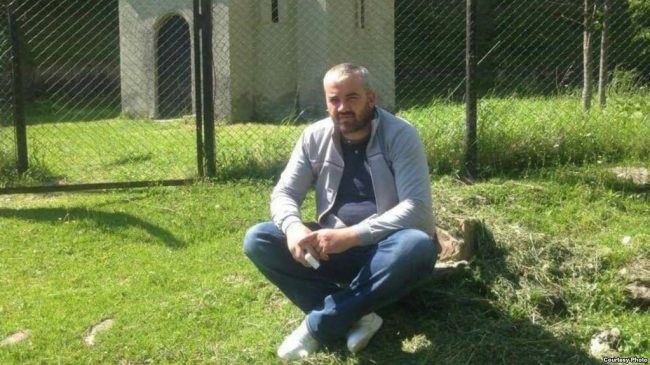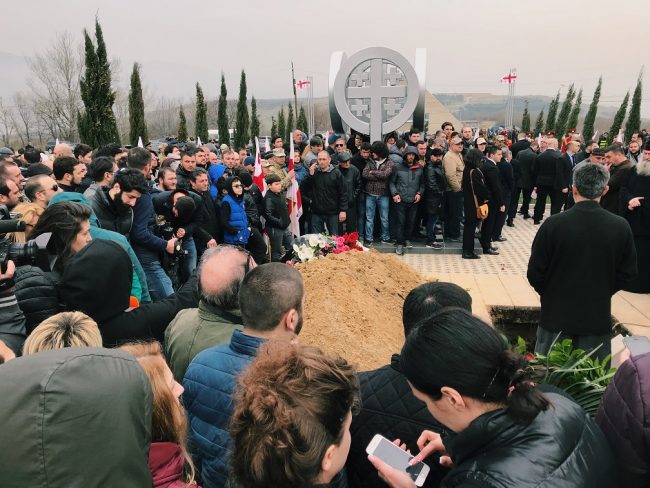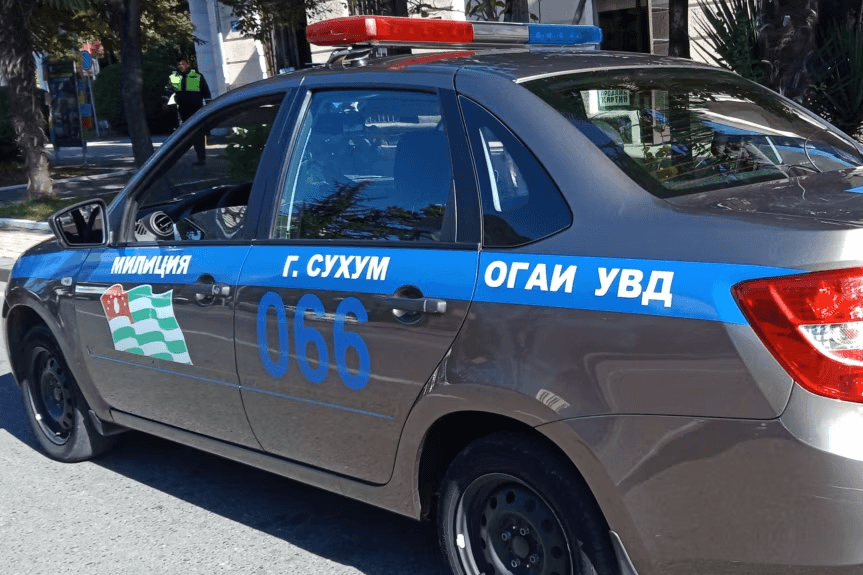

 An autopsy on the remains of Archil Tatunashvili, a Georgian citizen who died in South Ossetian custody in February, says that he suffered over 100 separate injuries before dying. South Ossetia claims that Tatunashvili, whose remains were transferred to Tbilisi almost three months ago, died after falling down a flight of stairs while trying to escape.
An autopsy on the remains of Archil Tatunashvili, a Georgian citizen who died in South Ossetian custody in February, says that he suffered over 100 separate injuries before dying. South Ossetia claims that Tatunashvili, whose remains were transferred to Tbilisi almost three months ago, died after falling down a flight of stairs while trying to escape.
According to a preliminary forensic medical examination report produced by the Samkharauli National Forensics Bureau, Tatunashvili sustained over 100 injuries including wounds, fractures, bruises, haemorrhages, and incisions while he was still alive.
‘[The autopsy] makes it clear that he was subjected to torture and inhuman treatment’, Ketevan Tsikhelashvili, State Minister for Reconciliation and Civic Equality told reporters.
Deputy Interior Minister Natia Mezvrishvili said their criminal investigation was initially for ‘homicide’ and ‘illegal deprivation of liberty’, but after the findings, ‘special cruelty’ and ‘group torture’ were added to the case as aggravating circumstances.
Mezvrishvili also said the government was ‘actively working’ on the Tatunashvili–Otkhozoria list, which would include individuals to be targeted by Georgian sanctions for crimes committed in Abkhazia and South Ossetia. Foreign Relations Committee Chair Sopio Katsarava told the press the list would be ready before 15 June.
The Georgian government has said the list is intended to include people accused or convicted of ‘murder, kidnapping, torture and inhumane treatment, and serious damage to the health of Georgian citizens on the occupied territories’. It also calls for sanctions against those covering up such crimes.
[Read more about Tatunashvili–Otkhozoria list on OC Media: Georgia to ‘sanction rights violators’ in Abkhazia and South Ossetia]
Tatunashvili’s family received an advanced copy of the autopsy report three days before the authorities’ 6 June announcement. His father, Giorgi Tatunashvili, previously said he had been informed through personal contacts that his son was killed with a ‘controlled shot’, but later stated that experts at the Forensics Bureau, where he visited on Wednesday, explained that the mark on the Tatunashvili’s face was not the trace of a gunshot wound but of forensic manipulations conducted in Moscow.
Speaking to Palitra News, he said he trusted the Georgian investigation and wanted to take his son’s killing to an ‘international court’. The Georgian government has declared its intention to file its own lawsuit against Russia to the European Court of Human Rights.
Russian autopsy
The South Ossetian security services claimed in March that he had died after falling from the stairs while trying to escape. South Ossetian authorities refused to release Tatunashvili’s body before announcing the results of a forensic examination conducted on tissue samples sent to Moscow. The Russian autopsy report, handed over together with the remains, named acute heart failure as a cause of Tatunashvili’s death.
Speaking to local press, Tamar Avaliani, a lawyer from the Tbilisi-based Human Rights Centre representing the Tatunashvili family, said these findings contradicted the initial investigation conducted by South Ossetian authorities. If he did indeed die of a heart attack, he added, it could only have been caused by the injuries he sustained during his torture.
Georgian authorities and Tatunashvili’s family have continued to demand the transfer of Tatunashvili’s internal organs, which South Ossetia claims were removed for forensic purposes.
According to the Georgian authorities, a full autopsy report determining the cause of death has yet to be completed. The Tbilisi-based Rehabilitation Centre for the Victims of Torture — Empathy is also expected to produce an independent autopsy report.
Calls for a transparent investigation
South Ossetian authorities handed over Archil Tatunashvili’s body to Georgia on 20 March, almost a month after he died. Tatunashvili, 35, was detained in Akhalgori (Leningor) on 22 February and died in Tskhinvali later that night. Following his death, South Ossetian authorities accused him of being a Georgian informant, and ‘participating in Georgian aggression in 2004–2008’. They later linked him to a homemade bomb they claimed to have found in Akhalgori.

Tatunashvili served in the Georgian armed forces from 2007–2011, but according to RFE/RL’s Georgian service Radio Tavisupleba, he was serving in Iraq during the August 2008 war.
Following the incident, the US State Department, United Nations Human Rights Office, EU, and others called for a thorough investigation into Tatunashvili’s death.
[Read on OC Media: EU ‘gravely concerned’ at death in custody in South Ossetia]
On 24 March, Tatunashvili was buried with military honours at the Mukhatgverdi Brothers’ Cemetery in Tbilisi.
For ease of reading, we choose not to use qualifiers such as ‘de facto’, ‘unrecognised’, or ‘partially recognised’ when discussing institutions or political positions within Abkhazia, Nagorno-Karabakh, and South Ossetia. This does not imply a position on their status.









